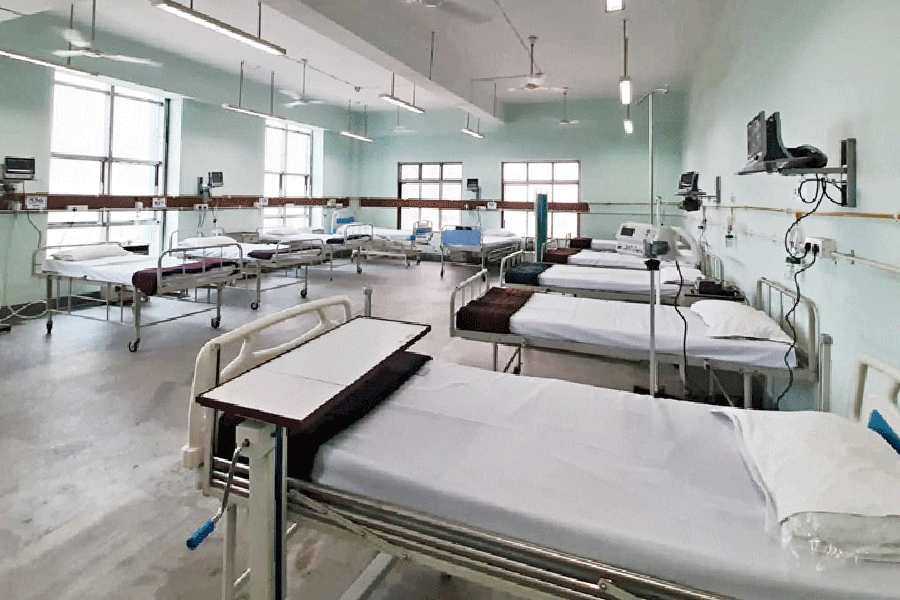A remote monitoring system has been helpful in tracking abnormalities in patients even at odd hours, said doctors and officials of a private hospital in Kolkata where the technology has been in use for a little less than a year.
A thin sheet with sensors for data accumulation and a communication unit is placed under the mattress of a hospital bed. The sensors capture micro-vibrations produced by the body every time the heart pumps blood and during inhalation, exhalation, muscle twitches, tremors or body movements.
These signals are converted into biomarkers like heart rate, respiratory rate, blood pressure and oxygen saturation level by an AI engine. The nursing station is connected with the system, as are the cell phones of doctors.
Dozee, billed by the makers as an “AI-based contactless remote patient monitoring and early-warning system”, has been in use at Belle Vue Clinic for over seven months now.
The system is being used in beds in the non critical-care units. Units like ICU and ITU have a monitor attached to every bed. But in general wards, it is not possible to track each patient round-the-clock, said officials.
“It is an early-warning system. This system is continuously recording parameters like heart rate, oxygen saturation, and respiration rate. The system gives a patient a score and assigns a colour code. Green means normal, orange is slightly increased risk and red is high risk,” said Rahul Jain, internal medicine specialist at Belle Vue.
Pradip Tondon, CEO of Belle Vue, said the hospital has gradually scaled up the use of the technology.
“In case anything untoward is observed, the system gives an alert so action can be taken,” he said.
Dozee works on a technology called Ballistocardiography (BCG), a non-invasive method that tracks vibrations from every heartbeat, respiration and minute body movements. This makes it ideal to capture data without any additional efforts from the patients or the caretakers.
More than 350 hospitals in India are using the technology, said a spokesperson for the company. Some more in Calcutta are in the pipeline, she said.
“There is a shortage of skilled nurses at hospitals. Outside critical-care units, the practice is to check a patient’s vitals once every 4-5 hours. The frequency takes a hit if the number of patients goes up or the number of nurses goes down. This is where Dozee comes in. It improves efficiency and saves time,” said Mudit Dandwate, CEO and co-founder of Dozee.
